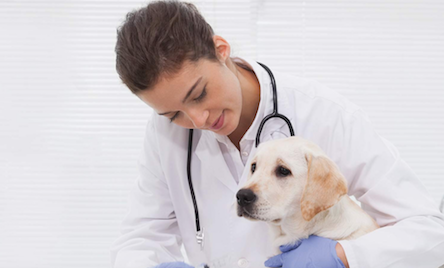York-based Animalcare Group plc, the international animal health business, said on Thursday its revenue slipped 1.9% to £71.1 million in the year ended December 31, 2019 as it was “impacted by supply challenges.”
Underlying EBITDA rose 11.3% to £13.1 million — but the firm’s statutory loss before tax, which incorporates non-underlying items, increased to £1.6 million from a £400,000 loss in 2018.
Animalcare Group CEO Jenny Winter said the firm continue to pursue business development opportunities “that can reinforce the competitiveness of our existing portfolio or add differentiated products with the potential for longer term returns and more sustainable margins …”
Winter said in her stock market statement: “Our positive 2019 performance enabled the Animalcare Group to enter 2020 in a strong financial position with a solid platform from which to drive our growth strategy.
“We delivered in line with market expectations, improving cash conversion, increasing underlying EBITDA and reducing net debt despite a decline in revenues due to now-resolved product supply issues.
“Strategically, we boosted our capability in key areas such as business development and marketing while we made significant progress towards our goal of generating 80 per cent of revenues from the top 20 products in a more optimised portfolio.
“Our internal pipeline continued to progress with the regulatory submission in early 2020 of our candidate COX-2 inhibitor pain treatment for dogs.
“On the business development front the Group struck deals to support our Companion Animals and Equine segments.
“Since the turn of the year the importance of employee safety and balance sheet strength has been thrown into even sharper relief by COVID-19.
“Of course, we are not alone in facing this challenge, but I am satisfied that we were able to take early and decisive action to safeguard our people and protect our cash position.
“Performance over the first three months of the year was strong with the expected downturn in demand coming into view from Q2.
“The Companion Animals sector, where public health measures have often restricted veterinary activity to emergency treatments, has been the most affected.
“By contrast, the Production Animals segment has shown real resilience, helping to offset some of the decline in demand.
“Forecasting the exact shape and speed of the recovery will be difficult, though judging by the countries, like Germany, that have operated more normally through this period it is clear that the driver of the recovery in demand will be the speed with which vets return to work.
“We have noted the early signs of a return in some other countries more recently and continue to monitor the situation closely.
“What I can say with certainty is that our ambition to establish the group as a leading company in the animal healthcare sector is unchanged by the current circumstances.
“We continue to pursue business development opportunities that can reinforce the competitiveness of our existing portfolio or add differentiated products with the potential for longer term returns and more sustainable margins …”
